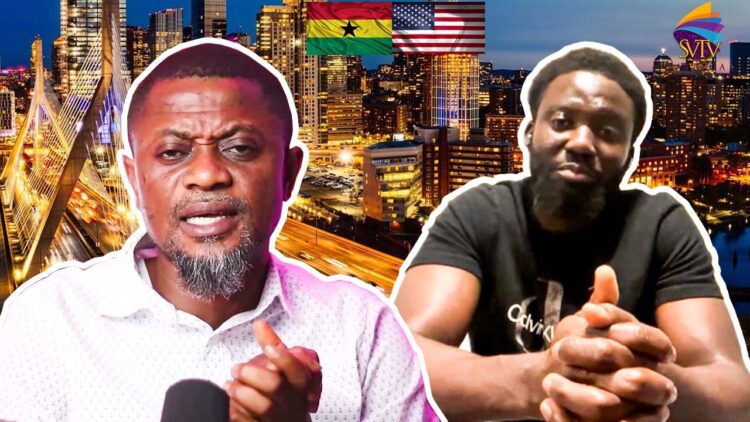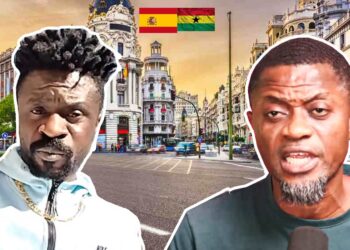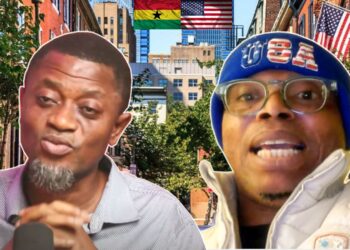Nana Akwasi is a Ghanaian based in North Carolina, USA, where he has lived for 13 years. In that time, he has returned to Ghana only three times. He originally comes from Kumasi, Krofrom.
He recounted that his father first traveled to the United States and later filed for him to join. Once he obtained his visa, he knew he would eventually travel, so he was not very serious in secondary school.
When he finally arrived in America, the reality he met was different from the fantasies he had heard back home. His father had sponsored about four people to the U.S., so finances were tight. At the time, he had neither a cellphone nor a TV in his room, and the boredom was overwhelming. He stayed home for four months before summer school began, then later enrolled in college and eventually secured a good-paying job. Because his father did not take rent from him, he was able to save money.
Even though he had the savings, he avoided credit and expensive purchases. At one point, he managed to save $20,000. When he decided to buy a car, he chose a 2002 Honda Civic, and later a used Toyota Corolla S worth about $2,000. He eventually worked at a car dealership where they could buy cars for $5,000 at auction and sell them for $20,000, but customers had to pay installments of about $300 a month. He realized cars bought cheaply were sold at very high prices, and dealerships even installed trackers under vehicles to repossess them after a single missed payment. This experience made him distance himself from “the American dream.”
He later moved into an apartment with a man who rented an entire house. The man was always indoors and heavily invested in cryptocurrency. After making $9,000, he became greedy, went back for more, and lost everything. He became extremely depressed and even suicidal. During that time, Akwasi was paying rent to him, but the man was using the money to chase crypto.
Akwasi worked a full-time job and also did Amazon delivery on the side. Even weekends were for work; he hardly rested.
Eventually, because rent had not been paid for six months, they were given just one day to pack out. After living there for seven years, he had to remove all his belongings within two days and move back to his parents’ home. He had been independent for six years, so the return was difficult. The unpaid rent also resulted in an eviction mark on his rental record.
A friend later helped him get another apartment by using his name, and that is where he currently lives.
Akwasi hopes to marry someday, but he prefers a Ghanaian wife over an American. He wants to return to Ghana to settle down because he originally traveled to take care of his mother, who used to sell water to support him. Sadly, she passed away in 2019, and he could not see her body. To him, Ghana was “heaven,” but most people do not realize the value of peace and community until they leave.
He is currently working on a project in Ghana. He describes himself as a jack of all trades, investing in different ventures. He believes that in Ghana, people enjoy freedom, happiness, and strong friendships, although the boredom can sometimes be intense.
He completed college in the U.S., proceeded to university, and graduated in 2020. When the pandemic hit, he lost his job. That same night, he signed up for Uber and Lyft and made $100, then later moved on to other jobs.
After 13 years in America, he admits the country has helped him achieve things he could not have accomplished in Ghana. During the pandemic, he felt disconnected from himself, and when travel restrictions eased, he went to Ghana briefly. Returning to the U.S., he advised that anyone—especially Black people—who wants to stay in America should think carefully. He believes COVID-19 was intentional and changed many lives.

















